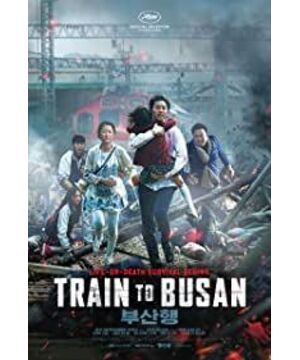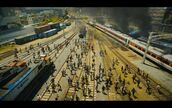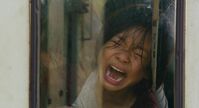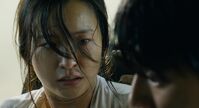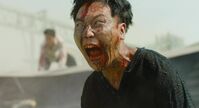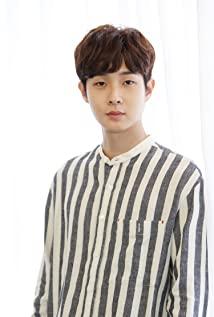The image of zombies is inseparable from the latter. After World War II, human beings experienced a collective reflection: why do we suddenly forget the virtues of morality and the so-called human nature, and degenerate into demons?
There are attempts to give answers, such as Zimbardo's Stanford Prison Experiment, the Lucifer Effect. However, they can only give a helpless answer, that is, unfortunately, we cannot accurately judge where the devil hides, it exists in everyone's heart. During the Rwanda genocide, the Hutu people slashed at the Tutsi people around them overnight, even though they were friends and neighbors who were chatting and laughing with them before dark; the Red Soldiers during the Cultural Revolution could punch their classmates, teachers and even their relatives. Kicks and whips at each other; in Abu Ghraib prison, the heroic soldiers of the former U.S. military committed prisoner abuse... "Good people" turned into demons overnight, we can use "obey authority", "depersonalize, Dehumanization", "group polarization, group thinking" and other theories are used to explain this process, but similar situations are still repeated. In the German movie "The Tide", even in modern Germany, which has been extremely alert to fascism, students put on uniform white shirts and armbands, and it is only a blink of an eye from discriminating, excluding others, and becoming a Nazi tyrant. can be done.
To this day, no one has been able to answer the "how" of this process. However, zombie films are the most intuitive interpretation of this phenomenon: good and evil are in an instant (a thought).
Another great metaphor for zombie stories is politics.
Many years ago, I had a chat with a friend, why are vampires so sexy and sultry, and even have an idol color, but zombies are so ugly, miserable, wretched, and despicable? Why in the end of the vampire movie, humans will be sent to the door to be bitten and transformed, but zombies will always only have their mouths open and a group of people swaying and chasing one person?
When the question is asked, we already have the answer in our hearts. If werewolves, vampires, zombies and other aliens are the visualization of human spirit, then vampires have evolved to today, representing dark but noble (Gothic), elite, and even unconventional and unique groups; while zombies are not only evil, but also often It symbolizes the numbness and the bottom of the crowd (for example, Nazi soldiers in many games are often associated with zombie images), and the appearance of zombie images often implies political metaphors, implying riots that erupted from the bottom, streets, docks, etc.
All of the above are the ambitions of "Train to Busan" director Yeon Sang-ho.
However, compared to "Train to Busan", a well-regulated, touching, and successful commercial film, the two animations that Yan Shanghao had made before, which were not well-known and had mixed reviews, may better reflect his narrative ambitions. The first was "The King of Pigs" in 2011, which talked about the violence and oppression between different classes in a school, as well as the helplessness and weakness of the protagonist after he became an adult. "Seoul Station" is known as the prequel to "Train to Busan", but if it weren't for the success of the latter, few people would have patiently watched this animated cartoon with a jerky picture and a slow and protracted plot. Nonetheless, the story of "Seoul Station" shows the director's larger ambitions and more clearly expresses the emotions he wants to emphasize: a deep sense of the hierarchy of human society, the exploitation, and the (darkness of) human nature. of disgust.
From "Seoul Station" to "Train to Busan", Yeon Sang-ho first learned to "tell a good story" (while Chinese movies are falling further and further). In addition to the excellent pacing of the film, the handling of some plots is also noticeably gentle and soft. The father who forced his daughter into prostitution became the loyal guardian of his daughter, the weak boyfriend who pimped his girlfriend became a heroic boy who wielded a baseball cap to protect his sweetheart, and even the zombie virus that occurred among the homeless in the bottom society was implicitly suppressed. The interpretation has spread from ordinary carriages to high-end carriages (I paid special attention to it, the carriages of the male protagonist and daughter have three rows of wide seats, but the car of the front door baseball team has four rows of narrow seats).
The second is the use of zombie themes. Being able to use a popular intention in Western culture and combine it well with the tradition of oriental culture, such as father-daughter love, sheltering the elderly, the weak, women and children, and the delicate and subtle means of orientalization, is the highlight of Korean films in recent years. one. For example, "The Crying Voice" smoothly wraps the images of Satan and demons, as well as the "sin" of being eroded by paganism and being attacked by demons in an unstable heart, in the context of foreign aggression during the Japanese occupation.
In fact, "Train to Busan" is not more profound and unique than any zombie film, except for one thing: the objects people fear are not only zombies, but also each other. Because even if they are not bitten, the evil in people's hearts has already emerged.
In addition, the criticism of politics has turned into airdropped zombies and vague station commanders, and the evil of human nature has almost been condensed into "you always think about yourself" and the bus company boss alone. Of course, none of this prevents "Train to Busan" from being a wonderful film. Whether they prefer sharp and heavy mouths or gentle presentations, everyone has their own preferences. And, there is no doubt that the gunshots that sounded at the end of "Seoul Station" but failed to sound in "Train to Busan" left the audience somewhat of a warm hope, and also made everyone feel more favorable to the whole story.
If we have to say, among the hundreds of people on a train, can five really be able to do this? hanging. Not to mention life and death, even in normal times, you can often see people make some surprising reactions. In addition to being surprised, I am afraid that I can only let go of the fragility of the human heart at a very moment.
View more about Train to Busan reviews


